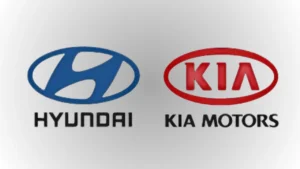Hyundai and Kia recall over 208,000 EVs due to a defect causing potential power loss, increasing crash risk.
Kia and Hyundai, two giants in the automotive industry, have recently issued a significant recall affecting over 200,000 electric vehicles (EVs). This recall highlights a serious concern: the potential for vehicles to lose power while being driven. As EVs continue to dominate the future of transportation, such recalls emphasize the importance of safety, reliability, and consumer trust.

Buy Vivo Y300 5G (Emerald Green, 8GB RAM, 128GB Storage) with No Cost EMI/Additional Exchange Offers
The Underlying Issue
The recall stems from a defect in the Integrated Control Charging Unit (ICCU), a critical component responsible for energy flow management in the affected vehicles. A malfunction in this unit may lead to a complete loss of power mid-drive, posing risks for drivers and passengers.
Models Impacted
- Hyundai Ioniq 5 (2022-2023)
- Hyundai Ioniq 6 (2023)
- Kia EV6 (2022-2023)
Owners of these models are urged to take immediate action by contacting their dealerships.
Potential Dangers
Driving a vehicle that suddenly loses power is not just inconvenient; it can be hazardous. From highway accidents to being stranded in remote areas, the risks are manifold. This recall underscores the necessity for rigorous quality control and pre-release testing.
What Are Automakers Doing?
Communication With Owners
Hyundai and Kia have begun notifying affected vehicle owners via mail and email. Detailed instructions on what to do next are being provided to ensure quick action.
Free Repairs
Both companies are offering free ICCU repairs or replacements. Dealerships are also performing diagnostic checks to confirm the issue.
Software Updates
In some cases, software updates may resolve the malfunction. The automakers are prioritizing updates to address the defect efficiently.
Consumer Responsibilities
Checking Vehicle Status
Drivers can check if their vehicle is part of the recall by:
- Visiting the National Highway Traffic Safety Administration (NHTSA) website.
- Entering their Vehicle Identification Number (VIN) into the recall lookup tool.
Scheduling a Service Appointment
It is vital to schedule a service appointment promptly to address the issue and ensure the vehicle is safe to drive.
Also Read : India’s New EV Policy: 7 Powerful Reasons That Could Transform Domestic Manufacturing
Industry Implications
EV Reliability Concerns
This recall raises questions about the reliability of EVs. While they offer innovative technology and environmental benefits, automakers must address challenges such as power loss, battery performance, and software glitches.
Increased Scrutiny
Regulatory bodies like the NHTSA are likely to increase scrutiny on automakers, demanding higher standards for safety and performance in EVs.
All In All
The recall of over 200,000 Kia and Hyundai electric vehicles is a stark reminder of the challenges automakers face in ensuring EV safety and reliability. While the companies are taking steps to resolve the issue, it also highlights the importance of ongoing improvements in EV technology. For owners, acting quickly is essential to mitigate risks and restore trust in their vehicles.
FAQs
1. How do I know if my vehicle is affected by the recall?
Visit the NHTSA website and use the recall lookup tool by entering your VIN.
2. What should I do if my vehicle is part of the recall?
Contact your dealership to schedule a service appointment immediately. Repairs and updates are free of charge.
3. Is it safe to drive my vehicle before getting it repaired?
It’s recommended to minimize driving and consult your dealership for specific advice about your vehicle’s condition.
4. How long will the repair take?
The repair duration varies depending on the dealership’s workload and the specific issue with your vehicle. Contact your dealer for an estimate.
5. Will this issue affect other Kia or Hyundai models?
Currently, only the specified models are affected. However, it’s always a good idea to stay informed through official company announcements.
